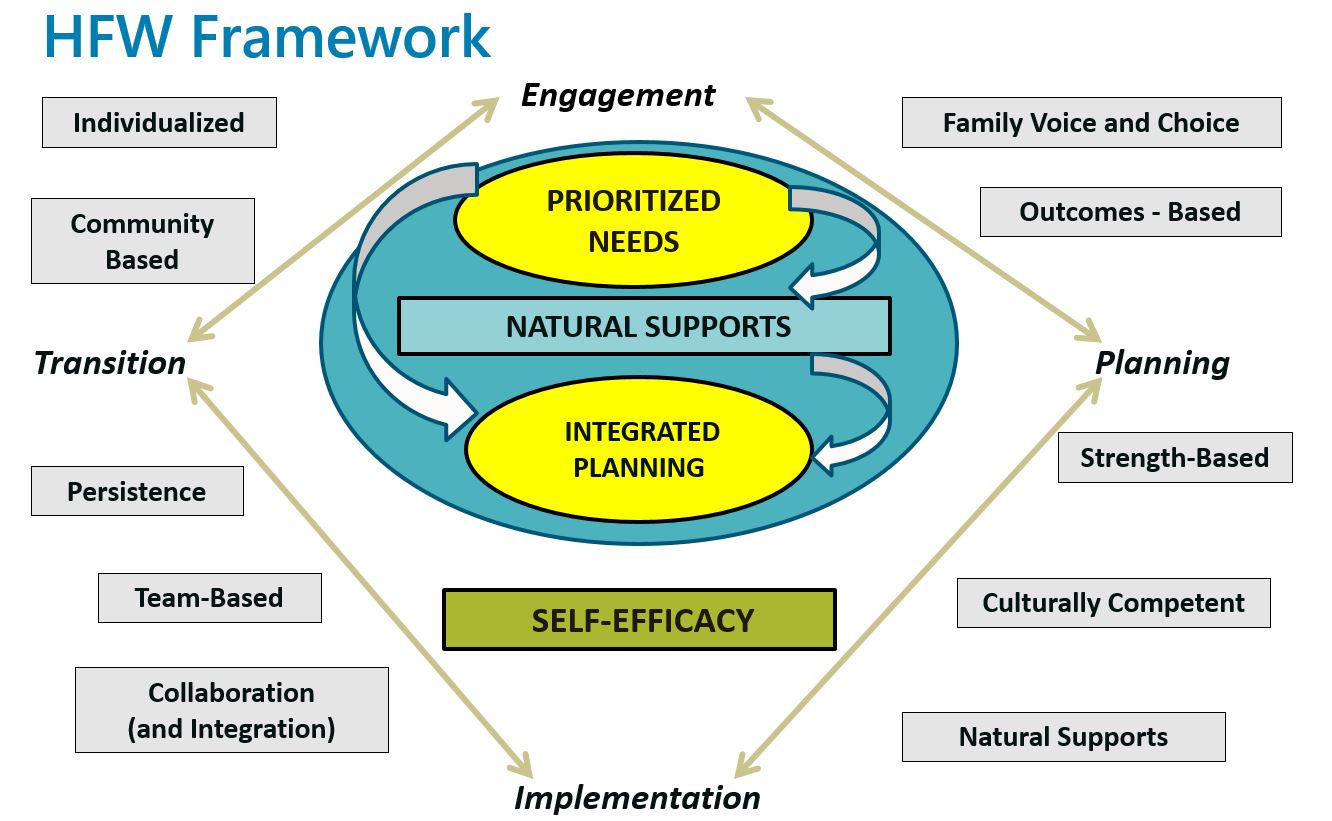

High Fidelity Wraparound (HFW) is a team-based, collaborative planning process for developing and implementing individualized care plans for children with behavioral health challenges and their families. HFW is an evidence-based process driven by 10 principles, four phases and a theory of change. HFW has four goals: To meet the stated needs (not services) prioritized by the youth and family, to improve the youth/family’s ability and confidence to manage their own services and supports, to develop or strengthen the youth/family’s natural support system over time, and to integrate the work of all child serving systems and natural supports into one streamlined plan.
The HFW Facilitator leads the process by guiding the team (including the youth, family, system partners, service providers, and natural supports of the youth and family) through the four phases (Engagement, Planning, Implementation, and Transition). The HFW Facilitator must understand the youth and family’s vision and prioritized needs (as well as the strengths, culture and people related to these needs), must ensure that the team understands these needs and corresponding strengths and culture, and must balance these needs with system partner mandates. HFW recognizes that needs are not services. Needs are what must change in order for the family to achieve their vision; services are one strategy for meeting needs. By breaking the larger prioritized needs into smaller goals, the action plans developed during HFW grow the family’s confidence and skillset. Each plan is developed and reviewed by the team and all plans have a measurable strategy. The HFW Facilitator maintains engagement with all members of the team and ensures that progress and success are continuously monitored and celebrated.
HFW is not a typical treatment intervention. HFW does not aim to “solve the family’s problems.” The HFW facilitator is not a clinical expert making decisions for the family. The role of the Facilitator and the HFW team is to develop the self-efficacy of the youth and family such that they are more confident problem-solvers and can more successfully identify, plan for, and meet their own needs. In HFW, we do not do things for the family that they can do for themselves. Self-efficacy is achieved by transitioning and building the skills of the family and their natural support system. HFW is a process; positive outcomes result when the process is followed to fidelity. This requires commitment by all involved (Funders, Referral Source, HFW Facilitator, Youth and Family, and HFW team).

Please refer to the topic links below to obtain additional information regarding HFW.